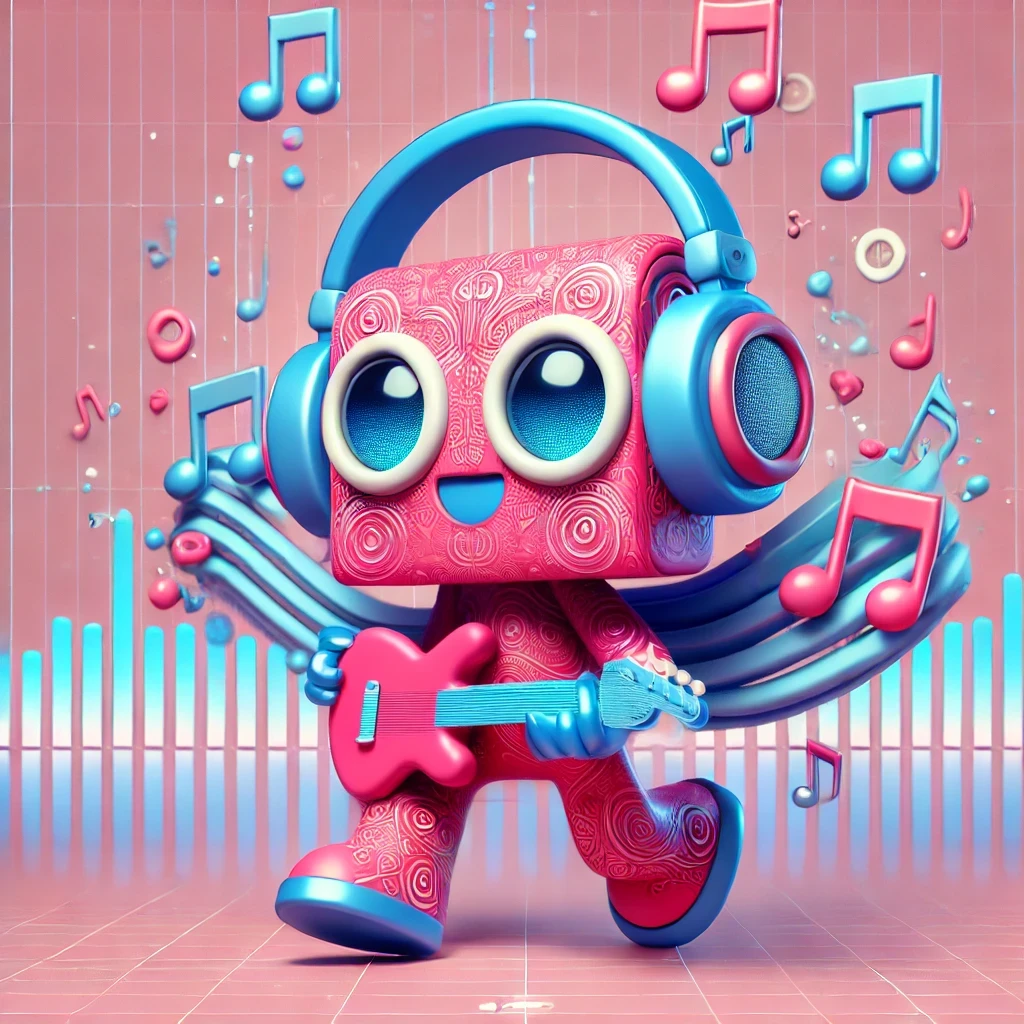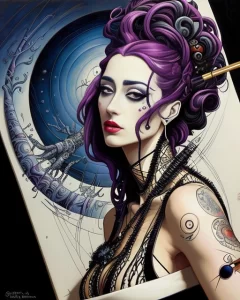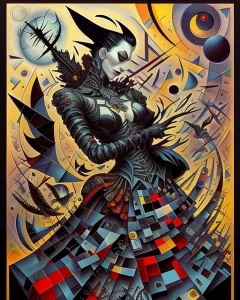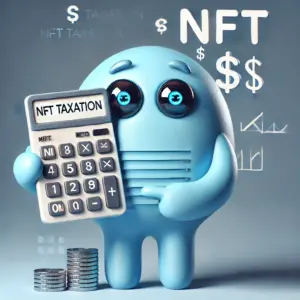The music industry has always been at the forefront of innovation, constantly adapting to new technologies and trends. From the vinyl record to the cassette tape, the CD, and the streaming platform, the way we consume and experience music has undergone a dramatic transformation. Now, the latest disruptor on the scene is non-fungible tokens (NFTs), a technology that is reshaping how artists interact with fans, monetize their work, and build sustainable careers.
NFTs are unique digital assets that represent ownership of something, whether it be a piece of art, a collectible, or even a virtual item. Their unique characteristics, including scarcity, authenticity, and programmability, are revolutionizing the music industry in several ways, offering artists and fans new opportunities and challenges.
Unlocking New Avenues for Artist Revenue
For musicians, NFTs present a powerful new way to monetize their work and connect directly with their fan base. Traditionally, artists have relied on record labels and streaming services to distribute their music and earn revenue. However, this model often leaves artists with a small share of the profits, and they have limited control over their creative output.
NFTs empower artists to take control of their careers and generate income directly from their fans. Here’s how:
Selling Exclusive Digital Assets
Artists can create and sell unique digital assets, such as:
Exclusive audio tracks: Artists can release rare or unreleased tracks as NFTs, giving fans access to exclusive content.
Limited edition albums: NFTs can be used to create limited-edition versions of albums, providing fans with a unique and collectible experience.
Virtual concert tickets: Artists can use NFTs to sell virtual tickets to online concerts or livestreams, offering exclusive access to their performances.
Digital artwork: Musicians can create and sell digital artwork, such as album covers, music videos, or even their own virtual avatars, as NFTs.
These NFT-based offerings provide fans with unique ownership rights, creating a strong sense of community and loyalty. This direct-to-fan connection enables artists to establish a more personal relationship with their audience, fostering deeper engagement.
Creating Membership Programs
NFTs can be used to establish exclusive fan clubs and membership programs, offering unique perks and benefits. Imagine a scenario where fans purchase an NFT that grants them access to:
Behind-the-scenes content: Members can gain exclusive access to rehearsal footage, making-of videos, and other behind-the-scenes materials.
Early access to new releases: Members can have early access to new songs, albums, and merchandise before the general public.
Live Q&A sessions: Members can participate in online Q&A sessions with the artist, fostering direct interaction and feedback.
Exclusive merchandise: Members can receive limited-edition merchandise, such as signed vinyl records, personalized posters, or even physical artwork.
These programs provide a continuous stream of income for artists, fostering loyalty and engagement with their fans beyond the initial NFT purchase.
Building New Revenue Streams with Royalties
One of the most significant benefits of NFTs for artists is the ability to earn royalties on secondary sales. When an NFT is sold on a marketplace, artists can receive a percentage of the sale price. This “resale royalty” structure means that artists can continue to profit from their work even after the initial sale, a significant departure from the traditional music industry’s revenue model.
This royalty system creates a sustainable income stream for artists, ensuring they are fairly compensated for their work even long after it is created. It is a powerful tool for supporting independent creators and building long-term financial stability.
Empowering Fans and Creating Community
NFTs are not just a new revenue stream for artists; they are also a powerful tool for connecting fans and building vibrant communities around their favorite musicians.
Creating a Sense of Ownership and Exclusivity
NFTs create a unique sense of ownership for fans. Instead of simply consuming music, fans can become active participants in the artistic journey. By owning an NFT linked to a piece of music or a unique digital asset, fans gain a sense of exclusivity and belonging to a special community of supporters.
Fostering Fan Engagement and Interaction
NFTs can encourage fan participation and interaction in exciting new ways. Some artists have implemented innovative strategies:
Interactive experiences: Artists can incorporate NFTs into their music videos or interactive installations, allowing fans to engage with their work in new and immersive ways.
Virtual fan clubs: Artists can use NFTs to create exclusive virtual fan clubs, providing members with access to special events, content, and opportunities to interact with the artist.
Voting rights: Artists can use NFTs to give fans voting rights on things like album artwork, music videos, or setlists, fostering a sense of ownership and control in the creative process.
By creating these interactive experiences and communities, artists can further engage their fans, fostering deeper connections and strengthening the artist-fan bond.
Challenges and Considerations
While NFTs offer exciting possibilities for the music industry, it is essential to acknowledge the challenges and potential pitfalls.
Volatility and Price Fluctuations
The NFT market is highly volatile, with prices often fluctuating wildly. This can make it difficult for artists to predict their earnings and for fans to accurately assess the value of their NFTs.
Lack of Standardization and Regulation
The NFT space lacks standardized regulations and practices. This can lead to uncertainty for artists and fans, with various platforms, marketplaces, and contractual agreements existing. Clearer regulations and industry standards are needed to foster long-term sustainability and stability within the music NFT ecosystem.
Scalability and Accessibility
The current NFT infrastructure can be cumbersome and expensive for new artists and fans to access. The need for cryptocurrency wallets and navigating the complexities of blockchain technology can be a hurdle for mainstream adoption. Simplified onboarding and user-friendly platforms are crucial to making NFTs more accessible to the average music fan.
Environmental Concerns
The energy consumption of certain blockchain technologies, such as Ethereum, has raised environmental concerns. The “proof-of-work” consensus mechanism employed by Ethereum has faced criticism for its energy-intensive nature. However, the transition to “proof-of-stake” by Ethereum and the emergence of more sustainable blockchain technologies offer a pathway to mitigating these environmental concerns.
The Future of Music and NFTs
Despite the challenges, the synergy between music and NFTs is undeniable. The technology offers a transformative opportunity for artists to regain control over their careers, explore new revenue streams, and build enduring and vibrant communities around their work.
Beyond Music: NFT Integration
NFTs are not confined to music. They are poised to revolutionize other aspects of the music industry, such as ticket sales, merchandise, and even music licensing.
Ticketing: NFTs can be used to create unique, secure, and transferable tickets for concerts and festivals, eliminating counterfeiting and enhancing the fan experience.
Merchandise: Artists can use NFTs to sell digital and physical merchandise, allowing fans to collect limited-edition items and interact with the artist in new ways.
Licensing: NFTs can simplify and streamline the music licensing process, allowing artists to grant rights to their music for specific uses, receiving royalties for every use.
The development of new applications and use cases for NFTs within the music industry is ongoing. We are likely to witness the emergence of innovative platforms, tools, and business models that further enhance the connection between artists and fans.
Empowering Independent Artists
The emergence of NFTs is especially significant for independent artists, who often struggle to find their footing in the traditional music industry. NFTs provide independent musicians with direct access to their fans, enabling them to establish independent careers and build their own unique brands.
Evolving Fan Experience
NFTs are altering the way fans engage with their favorite musicians. The shift from passive listeners to active participants is fostering a deeper sense of connection and community. The ability to own unique digital assets, access exclusive content, and interact with artists in new ways is enriching the fan experience.
Conclusion
NFTs are not just a passing trend; they are a fundamental shift in the way music is created, distributed, and consumed. They offer artists and fans new possibilities, disrupting existing power structures and creating a more equitable and engaging ecosystem. Though challenges remain, the potential of NFTs to empower artists, foster fan engagement, and revolutionize the music industry is immense. As the technology continues to evolve and mature, we can expect to see increasingly innovative applications and use cases that will shape the future of music.
Table of Contents:
Q&A
What are the main ways NFTs are being used in the music industry?
NFTs are being used in the music industry for a variety of purposes, including:
- Selling exclusive digital assets, such as rare or unreleased tracks, limited-edition albums, and virtual concert tickets.
- Creating fan membership programs that offer exclusive access to content, behind-the-scenes experiences, and merchandise.
- Providing artists with royalty payments on secondary sales of their NFTs.
- Creating interactive experiences and communities that foster fan engagement and strengthen artist-fan relationships.
What are the benefits of NFTs for musicians?
NFTs offer musicians several benefits, including:
- Direct access to fans, enabling them to monetize their work and build a direct relationship with their audience.
- New revenue streams through the sale of exclusive digital assets and royalty payments on secondary sales.
- Greater control over their creative output and career direction.
- The ability to build vibrant, engaged fan communities.
What are the benefits of NFTs for fans?
NFTs offer fans a variety of benefits, including:
- Access to exclusive music, content, and experiences.
- A sense of ownership of their favorite artists’ work.
- Opportunities to interact with artists directly.
- A chance to be part of a thriving community of fellow fans.
What are some of the challenges associated with NFTs in the music industry?
The adoption of NFTs in the music industry comes with several challenges, including:
- The volatility of the NFT market and the potential for price fluctuations.
- Lack of standardized regulations and practices within the NFT space.
- Scalability and accessibility issues for new artists and fans.
- Environmental concerns associated with certain blockchain technologies.
What is the future of NFTs in the music industry?
The future of NFTs in the music industry is promising. The technology is continually evolving, offering exciting new opportunities for artists and fans. We can expect to see:
- The development of innovative platforms and tools that simplify NFT creation and trading.
- More widespread adoption of NFTs by artists and fans, leading to a more integrated and enriching music experience.
- Greater emphasis on sustainability and environmentally friendly blockchain solutions.
- NFT-based solutions for ticketing, merchandise, and music licensing.
NFTs are transforming the music industry, empowering artists and fans alike. As the technology matures and regulations evolve, we are likely to witness a flourishing landscape of creative and innovative initiatives that will redefine the future of music.






